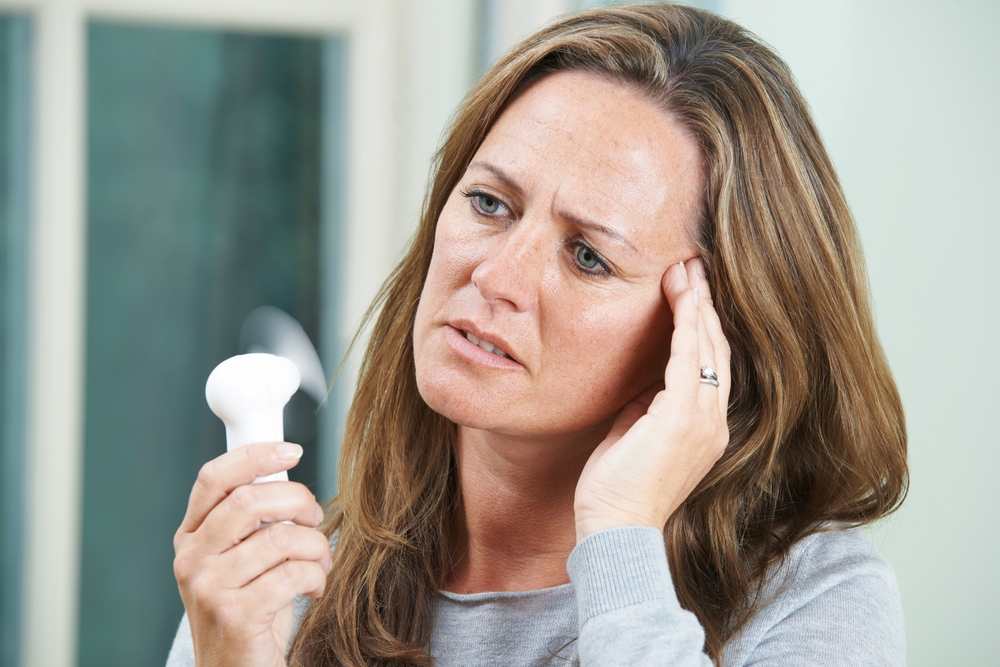
[Menopause] is not a clear time node, but a transitional period, generally referring to the period from ovarian function to decline until one year after menopause.
During this period, ovarian function gradually declines and estrogen secretion gradually decreases. As a result, the periodic growth and exfoliation of endometrium are affected until there is no exfoliation and bleeding, which means menopause.
Menopause marks the end of women’s childbearing age.
Because of the fluctuation and gradual decrease of sex hormone levels, a series of symptoms will appear in women’s bodies, which is the so-called climacteric syndrome, whose scientific name is [perimenopausal syndrome] (MPS).
Menopause usually has what symptoms?
Menstrual disorder
The most common manifestation of menopause. The cycle is long and short, and the menstrual volume is large and small. This is related to hormone fluctuation during menopause and is a normal physiological phenomenon.
However, it should be emphasized that if menstrual disorders occur at a certain age, it is still recommended to see a doctor and make clear the reason. Because sometimes menstrual changes may be signs of certain diseases.
In case of the following circumstances, timely medical treatment is required:
- Non-menstrual hemorrhage, even a small amount of punctate hemorrhage; Vaginal bleeding after sex; The amount of menstruation is obviously increased or the bleeding time is obviously prolonged. Any vaginal bleeding after menopause.
Hot flashes
Another common symptom.
It is usually manifested as sudden fever on the face and whole body, accompanied by skin flushing and sweating, which often lasts for seconds, minutes or more. The frequency of attacks varies from several times a month to many times a day, which is possible.
Hot flashes themselves are harmless, but they may interfere with daily life, and hot flashes that occur at night will also affect sleep quality.
Vaginal dryness
The decrease of estrogen level will make the vagina dry and inelastic, leading to pain and discomfort during sexual life. This also further reduces [sexual interest].
At the same time, pelvic floor muscle support decreases, and some women will suffer from uterine prolapse, vaginal wall swelling, urinary incontinence, etc.
In addition, perimenopausal period, vaginal and urinary tract infection is also more likely to occur.

Osteoporosis
It is also the cause of estrogen deficiency. Women’s calcium loss rate is accelerated, which makes them more prone to osteoporosis and joint soreness, thus increasing the risk of fracture in the future.
Cardiovascular symptoms
Blood pressure sometimes rises and falls, often accompanied by chest tightness, suffocation, palpitations, etc.
Mood swings
Easy to irritate, depressed, etc., is not uncommon in climacteric women. The parties often feel that it is difficult to control these emotions, and often have clinical symptoms such as insomnia, irritability, irritability, anxiety and fatigue. Severe cases will suffer from depression and even unable to socialize and work normally.
The above situation will affect the quality of life of women. It is necessary to give sufficient attention and reasonable treatment. We must not let it go.
Although it is a bit cruel, climacteric women should learn to accept the facts of aging, aging and functional degradation with a peaceful mind and scientific methods.
Men also don’t feel lucky, in addition to facing her [menopause] with their wives, the [male menopause] of middle-aged men also exists.
You can search [menopause] on Dr. Clove’s website or App to learn more about the correct ways to deal with menopause symptoms, self-conditioning and treatment methods. May our readers get through this stage smoothly and peacefully.
